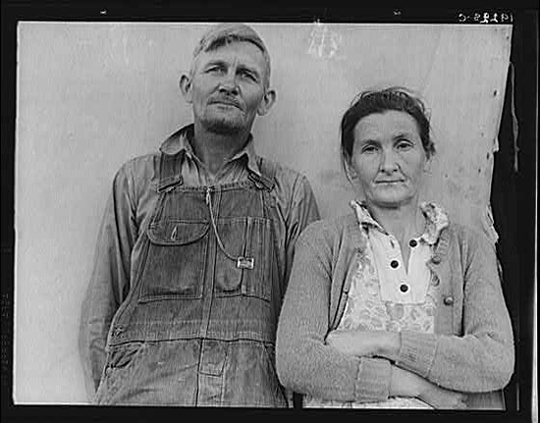Migrant Family
For the first half of 1939, Lange worked in California’s agricultural valleys. She followed the harvests with the migrant workers – from the Imperial Valley in February to the San Joaquin in May – and photographed them in the fields and in their camps.
“This photograph tells the whole story,” says Rondal Partridge, who worked as Dorothea Lange’s assistant. “With the Rolleiflex around her neck, she would set up another camera on a tripod. The camera on the tripod was a ‘come-on.’ The kids would gather round and ask for their picture to be taken. Then they would run to tell their parents, and she would follow. That’s how she met the adults.” The series of Lange’s photographs of a migrant family with eleven children records this process.
To tell the stories of this and other families, Lange wrote long captions (such as this one) for individual photographs. Later that year, by May 1939, she would begin to compose General Captions for groups of individual photographs/captions.
Migrant family with eleven children
Migrant family with eleven children
1-19201
Brawley, Imperial Valley, Feb. 23, 1939. In FSA migratory labor camp. Family, mother, father, and 11 children, originally from near Mangrum Oklahoma, where he had been a tenant farmer. Came to California in 1936 after drought. Since then have been travelling from crop to crop in California following the harvest. Six of the 5 children attend school wherever the family stops long enough. Five older children work along with mother and father. Feb. 23rd, two of the family had been lucky and “got a place” (a day’s work) in the peas on the Sinclair ranch. Father had earned $1.73 for ten-hour day. Oldest daughter had earned $1.25. From these earnings had to provide their transportation to the fields, 20 miles each way. Mother wants to return to Oklahoma, father unwilling. She says, “I want to go back where we can live happy, live decent, and grow what we eat.” He says, “We can’t go fixed the way I am now. We’ve got nothing in the world to farm with. I made my mistake when I came out here.”
2-19203
Same as 19201
3-21049
February 23, 1939. Brawley, Imperial County, Ca. In FSA migrant labor camp during pea harvest. Family from Oklahoma with eleven children Father, eldest daughter, and eldest son working. She: “I want to go back to where we can live happy, live decent, and grow what we eat.” He: “I’ve made my mistake and now we can’t go back. I’ve got nothing to farm with.”
4-19208
Same as 19201
5-19202
Same as 19201
6-19226
Same as 19201
7-19228
01
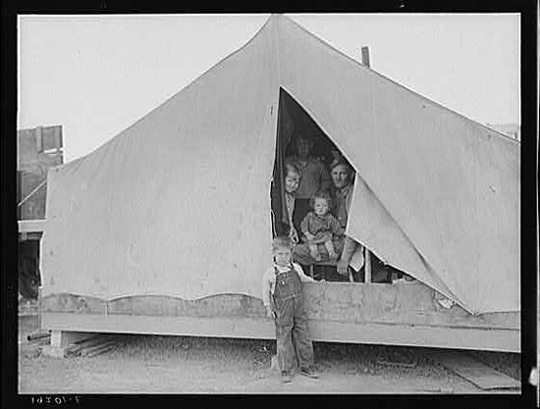
2-19203
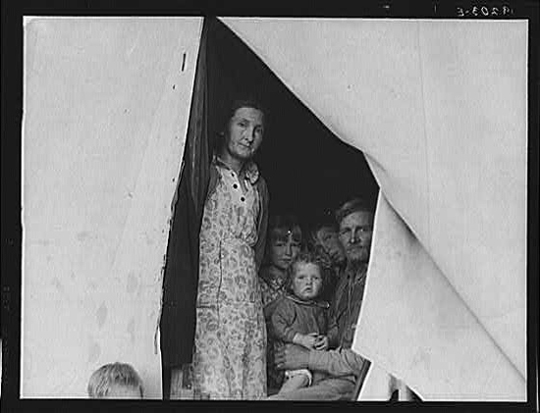
3-21049
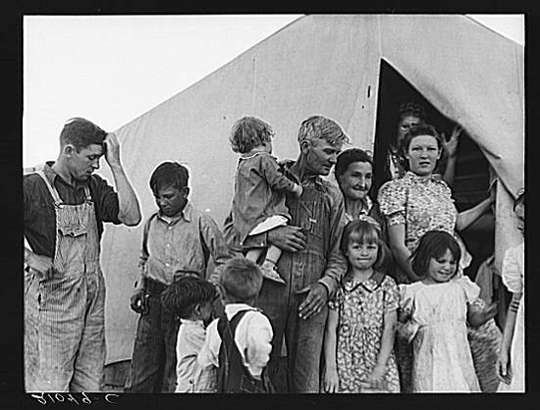
4-19208
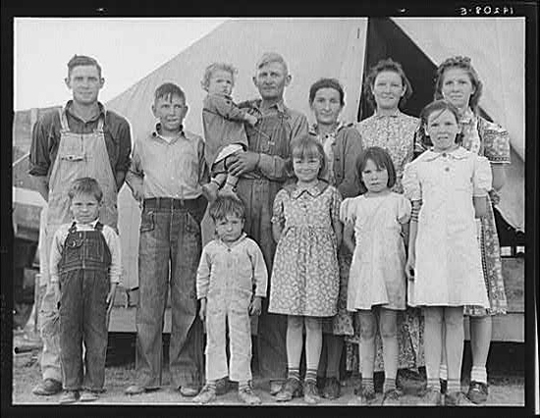
5-19202
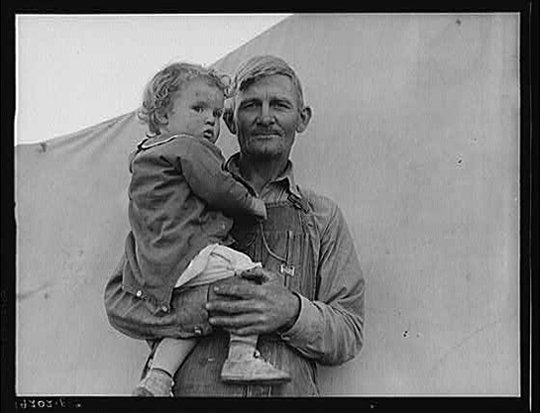
6-19226
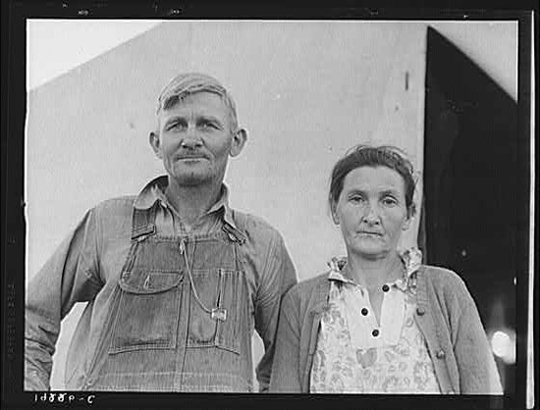
7-19228
